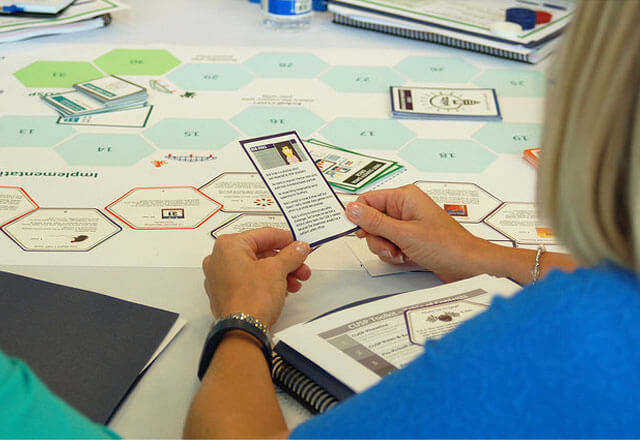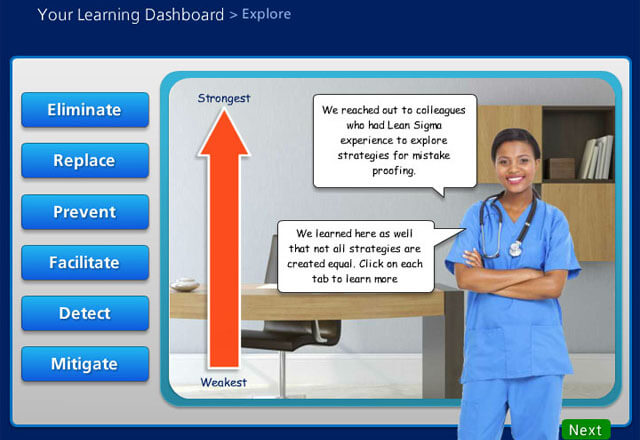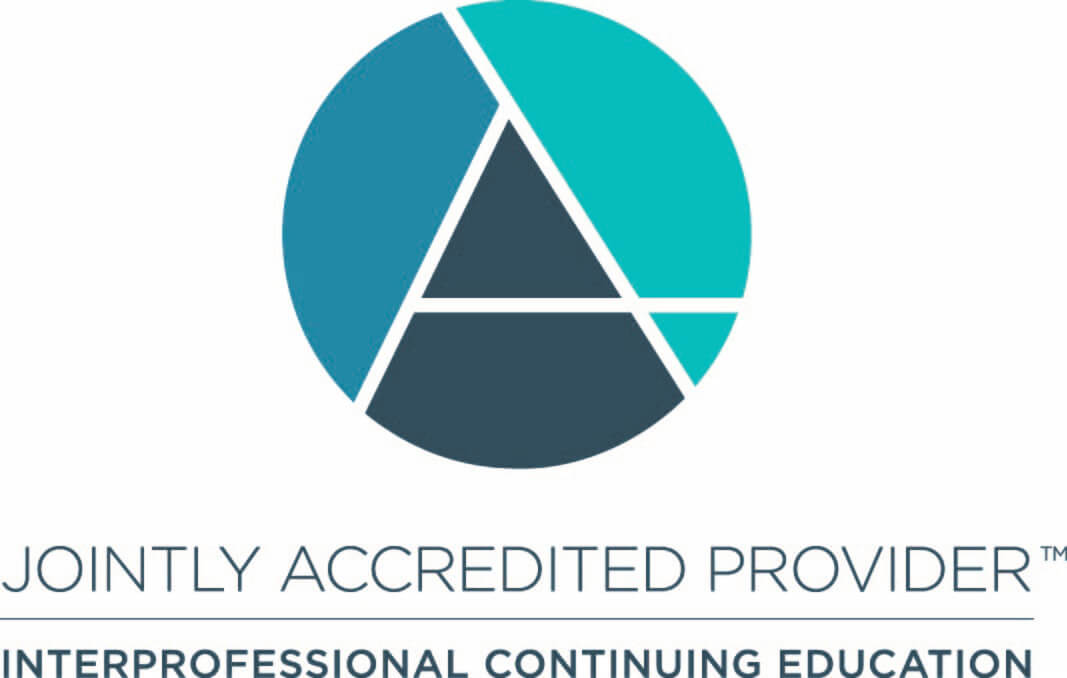CUSP Implementation Training

The Armstrong Institute offers several interactive training opportunities—a one-day workshop, online learning, and a remote coaching program—to help participants to launch and sustain effective Comprehensive Unit-based Safety Program (CUSP) teams.
Created by Johns Hopkins patient safety researchers, CUSP aims to improve patient safety culture while providing frontline caregivers with the tools and support that they need to tackle the hazards that threaten their patients.
CUSP has been used to target a wide range of problems: patient falls, hospital-acquired infections, medication administration errors, communication breakdowns and many others. It has been a linchpin of many large-scale patient safety improvement efforts across the United States and internationally.
Our CUSP Training Program
Participants have two options for CUSP training. The first option is a comprehensive program including a one-day workshop, online modules and remote coaching. The second contains the online modules only.
Option One: Comprehensive CUSP Training
One-day Workshop
Foundations of CUSP, our one-day workshop uses an innovative game to simulate the experience of preparing a CUSP unit, launching it, and sustaining an effective, engaged team over many months. Working in groups, learners devise solutions to common barriers, develop a firsthand understanding of the roles of different CUSP team members, and learn from the experiences of other teams. Before the workshop, participants must complete nine online modules that provide fundamental CUSP concepts.

Online Modules
Nine online modules provide a strong grounding in the knowledge and problem-solving skills you need to develop and sustain an effective CUSP team. Participants learn fundamental CUSP concepts and then apply those concepts in realistic scenarios. This self-paced program can be taken at any time on its own. Successful completion of these modules is required for the one-day workshop or to participate in a CUSP Cohort.

CUSP Cohorts
This coaching and support program consists of nine live webinars over one year. These events guide teams as they confront common challenges and help them to learn from each one another. Cohorts follow the CUSP Phaseline, a roadmap that lays out the steps needed for a self-sufficient CUSP team. A new cohort begins roughly every three months. To participate, individuals must complete the Foundations of CUSP online modules before the cohort start date.
Option Two: Online Modules Only
Take the same online modules as option one which includes:
- Why Choose a CUSP Approach
- Safe Design Principles
- Patient Safety Culture
- Assembling a CUSP Team
- Change Management 101
- Pre-CUSP Work
- CUSP Implementation Basics
- Learning from Defects
- Sustaining a CUSP Team
Registration
Please see our Cancellation/No Show & Refund Policy.
Beginning January 1, 2021, the No-Show Policy has been reinstated.
Option One: Comprehensive CUSP Training
Registration Open:
Includes: One-day Workshop, Online Modules and CUSP Cohorts
Standard participants: $1,245 per participant.
JHM Employees: Request a seat by contacting [email protected].
Option Two: Online Modules Only
Standard Registration: $300 per participant. Register through LearnShare
All Johns Hopkins Medicine employees (faculty and staff): contact [email protected] for registration details.
The CUSP Workshop Game | A Journey to Patient Safety
An Armstrong Institute workshop uses an innovative board game to simulate the experience of preparing, launching and sustaining a Comprehensive Unit-based Safety Program (CUSP) team.?
CUSP Implementation Training
Created by Johns Hopkins patient safety researchers, the Comprehensive Unit-based Safety Program (CUSP) aims to improve patient safety culture while providing frontline caregivers with the tools and support that they need to tackle the hazards that threaten their patients.
Learning Objectives
- Identify actions and use tools associated with three phases of CUSP: pre-CUSP work, CUSP implementation, and sustaining CUSP.
- Develop a plan to assess and improve patient safety culture in your unit or work setting.
- Assess teamwork & communication challenges that might impact patient safety efforts in your unit or work setting & develop a strategy to overcome them.
- Generate strategies to combine technical and adaptive work as you establish and sustain a CUSP team in your unit or work setting.
- Use the four questions that form the framework of the Learning from Defects tool to develop and sustain an improvement effort.
- Connect your CUSP team’s work to organizational strategies through partnership with a senior executive.
Who Should Participate
Patient safety officers, medical directors, administrators, unit-based safety champions, frontline staff, nurses, individuals moving into a safety oversight role, quality improvement professionals and risk managers. We encourage participants to come as groups.
Program Facilitators
Lori Paine, Dr.Ph., R.N., M.S.
Director of Patient Safety
Amy Plotts, M.S.N., R.N.
Assistant Director of Patient Safety
Cheryl Connors, D.N.P., R.N., N.E.A.-B.C.
Quality and Innovation Coach
Paula Kent, Dr.PH., M.S.N., M.B.A., R.N, C.P.P.S.
Patient Safety Specialist
Anne Steele, MSN, APRN, CPHQ, ACCNS-AG.
Patient Safety Innovation Coordinator
Natasha Hilton
Kris Mammen
Katie Outten
Patrice Carrington
Program Administrator
Questions?
Email [email protected].
Joint Accreditation Statement
Activity Date(s):
October 8, 2019

In support of improving patient care, this activity has been planned and implemented by the Postgraduate Institute for Medicine and Johns Hopkins Armstrong Institute for Patient Safety and Quality. Postgraduate Institute for Medicine is jointly accredited by the Accreditation Council for Continuing Medical Education (ACCME), the Accreditation Council for Pharmacy Education (ACPE), and the American Nurses Credentialing Center (ANCC), to provide continuing education for the healthcare team.
Physician Continuing Medical Education (Live Workshop)
The Postgraduate Institute for Medicine designates this live activity maximum of 6.75 AMA PRA Category 1 Credits™. Physicians should claim only the credit commensurate with the extent of their participation in the activity.
Continuing Pharmacy Education (Live Workshop)
Postgraduate Institute for Medicine designates this continuing education activity for 6.75 contact hour(s) (0.675 CEUs) of the Accreditation Council for Pharmacy Education.
(Universal Activity Number -JA4008162-9999-19-364-L05-P)
Type of Activity: Application
Continuing Nursing Education (Live Workshop)
The maximum number of hours awarded for this Continuing Nursing Education activity is 6.7 contact hours.
Continuing Nursing Education (Online Modules)
The maximum number of hours awarded for this Continuing Nursing Education activity is 5.0 contact hours.
Interprofessional Continuing Education (Live Workshop)
This activity was planned by and for the healthcare team, and learners will receive 6.75 Interprofessional Continuing Education (IPCE) credit for learning and change.
Disclosure of Conflicts of Interest
Postgraduate Institute for Medicine (PIM) requires instructors, planners, managers, and other individuals who are in a position to control the content of this activity to disclose any real or apparent conflict of interest (COI) they may have as related to the content of this activity. All identified COI are thoroughly vetted and resolved according to PIM policy. PIM is committed to providing its learners with high quality activities and related materials that promote improvements or quality in healthcare and not a specific proprietary business interest of a commercial interest.
Americans with Disabilities Act (Live Workshop)
Event staff will be glad to assist you with any special needs (i.e., physical, dietary, etc). Please contact Danielle Edwards prior to the live event at [email protected].
Fees:
A statement of credit will be issued immediately upon completing the evaluation on www.cmeuniversity.com.
Thank you for providing such an incredible day of learning. It was great to practice what we learned in the modules. I have never been in such a learning environment before, and this indeed was a fun-filled experience. It was a very creative and innovative way of teaching—clearly ‘thinking outside the box.’ I couldn't have asked for anything better.
Sherly Binu, Clinical Outcomes Analyst, The Johns Hopkins Hospital


